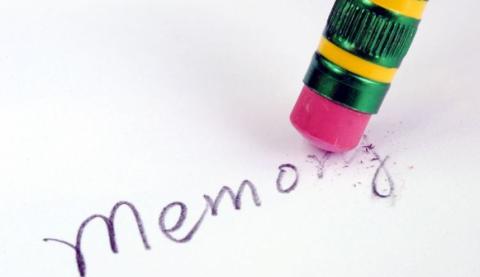I doubt there's anyone who, at one time or another, hasn't thought about how nice it might be to not have to work and simply lead a life of leisure. It wasn't that I didn't recognize the importance of work in breeding confidence, dignity and independence, but everyone likes to daydream one in awhile, imagining their own version of delightful idleness in some tropical Shangri-la. I never realized however, just how much work influenced ones mental condition and overall sanity until I saw its effect on someone with severe dementia.
The Lost
When I brought my father, who was in his eighties, to California from New York to place him in an assisted living facility here where I could be close to him, he was in the advanced stages of the kind of dementia often seen in people getting well on in years. He had declined beyond the abilities of the caretaker he had in New York to tend to him, as he was becoming more and more out of control and aggressive in his behavior, and while he may have been of diminishing mental capacity, even in his eighties, he was a big man and could still pack quite a wallop. He was becoming dangerous to himself and others.
I had him in my home for several days while sorting out the assisted living facility arrangements and I doubt my husband and I slept more than a few hours during that time. He needed to be watched constantly. He would attempt to leave the house and walk out into the middle of the street, or turn on all the stove burners to maximum flame and walk away. When he wasn't doing something that could get either himself or us killed or being threateningly hostile, he would often stand in the middle of the room talking to imaginary people in the ceiling and walls, or else just sit there looking dazed. Dangerous things like knives or expensive, breakable items like laptop computers all had to be secured where he couldn't get to them.
An Astonishing Change
During this time, something amazing happened. He was sitting in our family room muttering and reaching out to someone or something in the space in front of him. I came into the room awkwardly carrying a bunch of files and other paraphernalia from my home office so that I could keep an eye on him while I worked. I ended up dropping most of what I was carrying, scattering papers across the floor. It was as though he had woken up from a dream. He suddenly looked and acted the way he did before the dementia had sunk its teeth into him. The dazed, "not-there" look he usually had in his eyes cleared away and he hurried to help me pick everything up, while we engaged in normal, rational conversation. When he saw I needed help with something, he was able to swim up out of the mental muck he was now normally lost in, and break through the surface of it to sanity.
For the remainder of the time he was at the house, I was often able to bring back this state by putting my hand firmly on his shoulder and saying "Dad, I need your help", and giving him some simple tasks to do. While doing whatever the work was, he looked and sounded as rational as anyone else. Simple work enabled this man, however briefly, to recover something he had long ago lost. Instead of being sunk into the bleakness of his own failing mind, he was able to reach out into the environment and do something useful, as he had for most of his life, being always and excellent and had working provider for his family.
A Universal Cure
If even someone in my father's condition could rise above it to do something constructive, and if simple work could bring a person in that state, however briefly, into the present, imagine what it could do, and is doing, for "normal" folk like us!
Memories to Keep
While my father was still alive, he had progressed in his illness beyond the ability to record the events of his life for posterity, but I haven't. Those instances of work induced recovery were the last rational moments he had in life. I kept a book where I wrote about things relating to his life, and this- a piece of his story, has now been placed lovingly within it.
Dementia: The Cure

Posted Friday June 24, 2011
0 Comments / 0 Shares



